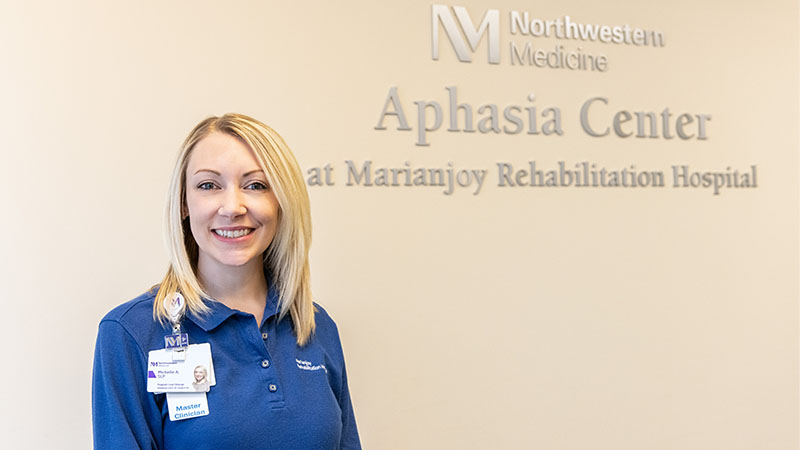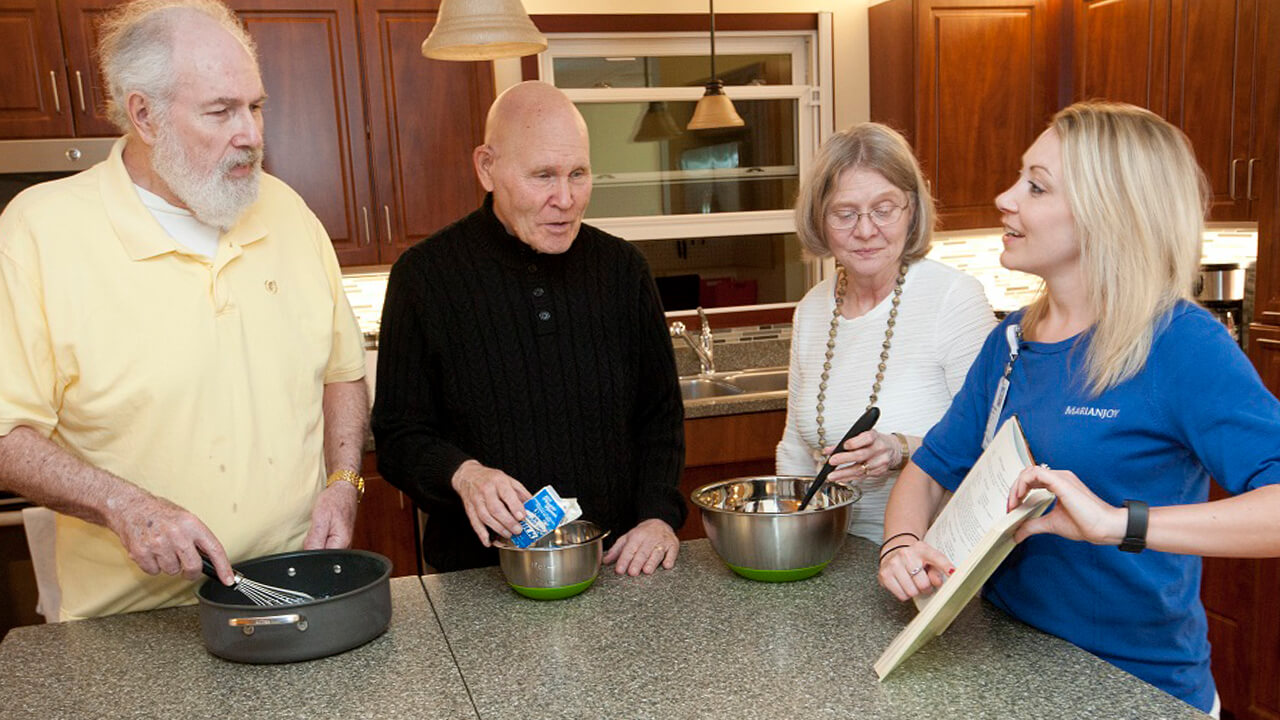Treatments
Aphasia Treatments
Depending upon the extent of brain damage, recovery from aphasia can vary significantly. In cases of transient ischemic attack (TIA), where blood flow to the brain was blocked temporarily and quickly restored, full language function typically returns. However in most cases of stroke-related aphasia, regaining language ability can be much slower and often incomplete. Even in cases where recovery occurs over time, some degree of aphasia typically remains.
Speech therapy
Northwestern Medicine offers specialty trained speech therapists who can help someone you love restore language abilities, compensate for language problems and learn new methods of communication. Treatment is designed to meet the specific needs of each individual and may be offered in private or group settings. Individual therapy focuses on the specific needs of the person. Group therapy offers the opportunity to use new communication skills in a comfortable, familiar setting.
Support groups
Stroke support groups, which are formed by individuals who have had a stroke, and other support groups, are an excellent outlet to improve communication abilities. These groups offer the opportunity for individuals with aphasia to learn new communication skills and adjust to the life changes that accompany stroke and aphasia.
How you can help
Aphasia can be a frustrating and challenging disorder. As a caregiver or family member, you can play a major role in helping your loved one improve skills by:- Using short and uncomplicated sentences
- Maintaining a natural, adult-appropriate conversational manner
- Repeating words to clarify meaning
- Writing down keywords as needed, for clarity
- Minimizing distractions, such as radio or television
- Including your loved one in conversations
- Encouraging any type of communication, such as speech, gesturing or drawing
- Avoiding correcting speech
- Allowing your loved one enough time to talk
- Finding a support group



